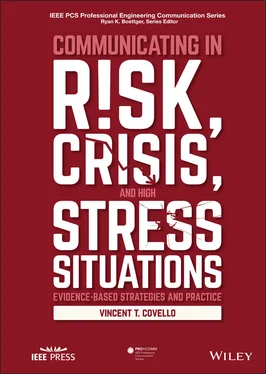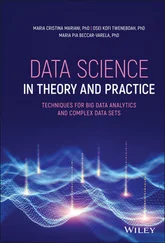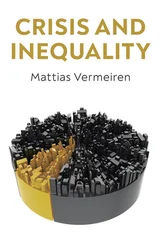Dr. Lydia Wilkinson (University of Toronto) will assume the editorial responsibilities of this series. I worked with Dr. Wilkinson for several years as part of IEEE‐PCS, so I know first‐hand the enthusiasm and competence she brings to this position. As a faculty member at the Institute for Studies in Transdisciplinary Engineering Education and Practice at U of T, Dr. Wilkinson’s perspectives on STEM education will further elevate the quality of this series.
Thank you to the Wiley Press and IEEE teams for the opportunity to edit this series. Once again, the cover art contributions of Austin Goodwin were instrumental in my mission to rebrand and freshen this series. I can only perform these editorial duties because of the support from the Department of Technical Communication at the University of North Texas. Finally, to my son Liam, who brightens my world every day… and who is hungry again, waking from his nap as I (finally) finish writing this note.
I owe thanks to many people who have helped me bring this book to published form.
First and foremost, I am grateful to Ryan K. Boettger, Ph.D., the Series Editor, for his invaluable advice, steadfast encouragement, and inspiring ideas.
I offer deep appreciation to my long‐time colleague and friend Joseph Wojtecki for his insightful suggestions. I am also grateful to Robert Coble, David Degagne, Donna Dinkin, James Gallagher, Randall Hyer, Thomas Hipper, Benjamin Morgan, Bernard Pleau, Peter Jacobs, Sean Tolnay, Steven Wolf, and Diane Yu for their thoughtful reading of draft chapter material and for their expert editorial work and suggestions. I thank Pat Levine and Esther Brumberg for their careful editorial assistance; and I thank Mary Hatcher at Wiley for her feedback, encouragement, and much appreciated vision for the project. Finally, this book could not have reached its final state without the candid and astute editorial contributions and eternal patience of my wife, Carol Mandel.
Dr. Vincent T. Covello, director of the Center for Risk Communication, is one of the world’s leading experts and practitioners on risk, crisis, and high concern communications. He is the author of more than 150 articles in scientific journals and the author/editor of more than 20 books. Dr. Covello is a consultant, writer, speaker, researcher, and teacher. He is a frequent keynote speaker and has conducted communication skills training for thousands.
Dr. Covello has served as a communication adviser to numerous private and public organizations. His work for government includes the World Health Organization, the US Department of Health and Human Services, the US Environmental Protection Agency, the US Department of Defense, the US Centers for Disease Control and Prevention, the US Nuclear Regulatory Agency, the White House Council on Environmental Quality, and the United Nations Scientific Committee on the Effects of Atomic Radiation. His work has been applied nationally and globally to a wide range of topics, including environmental incidents, natural hazards, disease outbreaks, terrorism, industrial accidents, occupational safety, air pollution, water contamination, hazardous waste, physician–patient communications, vaccine safety, operational disruptions, and organizational change. He has worked closely with the US State Health Directors on their responses to questions from the media and the public on disease outbreaks, including Ebola, Zika, and COVID‐19.
Dr. Covello has received many awards for his work and has held numerous positions, including Associate Professor of Clinical Medicine and Environmental Sciences at Columbia University, a program manager at the National Science Foundation, a study director at the National Academy of Sciences, President of the Society for Risk Analysis, and Vice‐Chairperson of the Radiation Education, Risk Communication and Education Committee of the National Council on Radiation Protection and Measurements. Dr. Covello obtained his BA with honors and MA from Cambridge University (England) and his doctorate from Columbia University.
1
The Critical Role of Risk, High Concern, and Crisis Communication
CHAPTER OBJECTIVES
This chapter addresses the role – and necessity – of successful communication in situations involving risk, high stress concerns, or crisis. It describes the book’s intent to serve both as a handbook for individuals and as a resource for training and education. At the end of this chapter, you will be able to:
describe the professional value of learning about risk communication principles and skills,
identify how recent changes in the social and technical environment affect communication practices, and
relate the organization and contents of this book to your individual needs.
The single biggest problem in communication is the illusion that it has taken place .
—George Bernard Shaw
This book is about communicating with people in the most challenging circumstances: high stress situations. The ability to communicate effectively in a high stress situation is an essential communication competency. It is a competency that differs in significant ways from other generic communication skills. If done well, it can build trust and agreement, enabling beneficial solutions and constructive behaviors even in the face of fear and anxiety. In a public health or environmental hazard situation, it can save lives. Poor communication in high stress situations can have disastrous consequences, whether the loss of a business or the failure to resolve a high impact policy or operational issue. Professionals in every field can be thrust into situations demanding specialized high stress communications skills, whether they are confronting an external crisis or leading organizational change. I wrote this book so that you can be prepared.
As a manager or technical professional, you likely have a logical, research‐based approach for addressing complex issues. You strive to ensure that people and communities benefit from this expertise. Yet all too often, the individuals and populations you serve do not share your trained perspective and thought processes; they do not consider your facts, judgements, and decisions persuasive, especially in situations fraught with high concern.
Enabling technical expertise to inform decisions and policy outcomes requires a body of well‐researched knowledge and trained skills in risk, high concern, and crisis communication. Without this knowledge and related skills, the negative consequences can be major.
1.1 Case Diary: A Collision of Facts and Perceptions
A few years ago, an established nuclear research facility hired me as a consultant. The facility housed a nuclear reactor used for high‐level research. It was also near a densely populated community that sat above a protected aquifer. This aquifer was the community’s sole source of local drinking water.
The site managers contacted me with concerns about a local newspaper article on this nuclear reactor. The article reported the facility’s nuclear reactor had leaked radioactive water for over a decade. Site managers and engineers had reportedly known about the leak for years. The leak resulted from a hairline crack, but the amount of the leaking radioactive water was well below levels that could cause human health consequences.
Leadership did not report the leak because they feared community outrage. They believed the public could misunderstand the science and react irrationally, even though the technical facts proved there was no significant environmental impact. Revealing the leak to the surrounding community might lead to unwarranted fear and panic and give ammunition to activists who were lobbying to shut down the reactor.
Читать дальше












